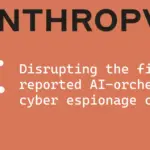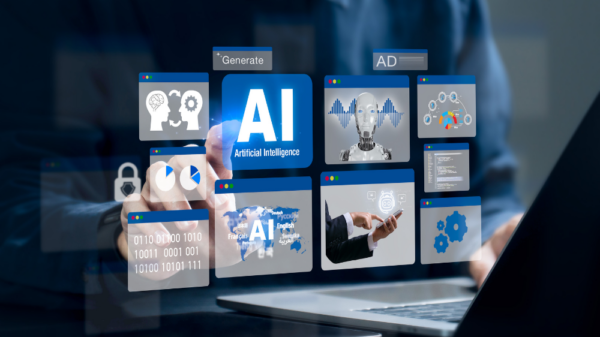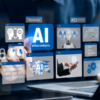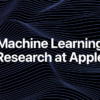AI’s Rapid Evolution: Insights from Economist Brian Korinek
In an era where artificial intelligence (AI) is advancing at an unprecedented pace, economist Brian Korinek reflects on his journey into AI research and its implications for the economy. His interest was sparked by his background as a programmer and the rapid advancements in deep learning during the early 2010s. As Korinek states, “It started becoming clear that advances in AI were proceeding faster than people in the ’90s had expected.”
The birth of his first child in 2015 amplified his interest. He believed that AI systems would gain significant power within the next couple of decades—potentially within his lifetime and certainly within his daughter’s. Remarkably, the evolution of AI has indeed accelerated faster than anticipated, with substantial advancements occurring within just a decade.
Integrating AI in Economic Research
Korinek has become a strong advocate for incorporating AI tools, particularly large language models (LLMs), into economic research. He has authored a guide for economists to leverage these AI agents in their workflows. Initially hesitant, Korinek began using AI tools in 2022, recognizing their potential to enhance productivity. “I had my first demonstration of a modern chatbot in September 2022, and I was quite blown away,” he recalls, emphasizing how quickly these tools have become indispensable.
He utilizes these AI systems throughout the research process—from ideation and background research to drafting and coding. In particular, the latest generation of reasoning models, which have shown remarkable capabilities in formal math, has significantly streamlined his research efforts. “Since I’ve been a programmer for more than three decades now, it’s nice to let the AI do the lower-level stuff,” Korinek explains, highlighting the evolving synergy between human oversight and AI’s computational power.
Korinek emphasizes that while most economists acknowledge the utility of AI tools, there are still concerns regarding accuracy. “It’s important to acknowledge that we need to be careful with these tools because they do sometimes produce mistakes,” he warns. He compares AI’s role to that of a research assistant, noting the necessity for oversight.
Concerns and Opportunities in an AI-Dominated Future
Despite the advantages, there are concerns that reliance on AI tools might diminish intellectual capabilities. Korinek draws a parallel to the physical demands of labor over the last century, suggesting that as certain skills become less relevant, we adapt our emphasis accordingly. He argues, “If we don’t need something anymore, we don’t need to train those muscles as much.”
Korinek’s research also delves into the potential effects of artificial general intelligence (AGI), which is defined by OpenAI as “a highly autonomous system that outperforms humans at most economically valuable work.” As cognitive capabilities improve, so does the value of robotics, essentially reshaping labor markets. He believes that the convergence of AI’s cognitive and physical abilities could lead to significant economic shifts, and how society values work will be crucial in navigating these changes.
He highlights that public policy must also evolve. He suggests scenario planning to prepare for radical AI advancements. “We should have a plan in case the more radical AI scenarios materialize,” he advises, emphasizing the need for readiness amid uncertainty.
Preparing the Next Generation
Korinek’s concerns extend to educational systems and their readiness for the AI future. He and his wife are keen on teaching their children about AI, recognizing the necessity for future generations to be proficient in these technologies. “We want everyone to be fluent in AI,” he asserts, underscoring its importance as a tool for productivity and economic advancement.
He warns that if rapid developments in AI occur, much of the human capital currently nurtured may become obsolete. Thus, he stresses the significance of supporting those who may be adversely affected by these transformations, ensuring that the benefits of technological advancements are equitably distributed.
As Korinek concludes, while nothing is inevitable, the trajectory of AI suggests that transformative changes are on the horizon. With appropriate policies and preparations, the potential for shared prosperity is immense, but it requires vigilant planning and adaptability in the face of rapid technological change.
 Hugging Face Partners with Google Cloud to Cut Model Download Times and Boost Security
Hugging Face Partners with Google Cloud to Cut Model Download Times and Boost Security Amazon Seeks $12 Billion in First US Bond Sale in Three Years Amid AI Infrastructure Race
Amazon Seeks $12 Billion in First US Bond Sale in Three Years Amid AI Infrastructure Race Anthropic Warns of AI-Driven Cyberattacks as Cybersecurity Reaches Critical Inflection Point
Anthropic Warns of AI-Driven Cyberattacks as Cybersecurity Reaches Critical Inflection Point India Unveils AI Governance Guidelines; Amazon Fights AI Browser Purchases
India Unveils AI Governance Guidelines; Amazon Fights AI Browser Purchases Yann LeCun Critiques Meta’s AI Focus on LLMs, Advocates for World Models Instead
Yann LeCun Critiques Meta’s AI Focus on LLMs, Advocates for World Models Instead




































































